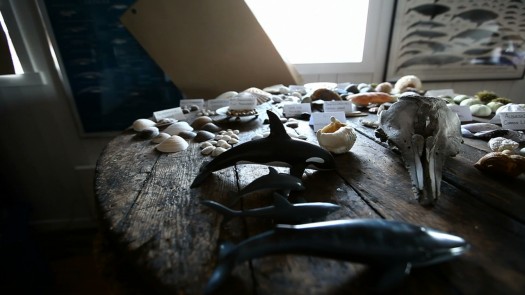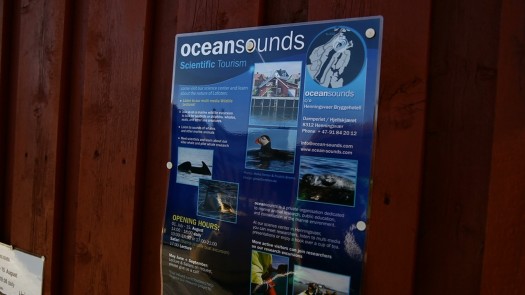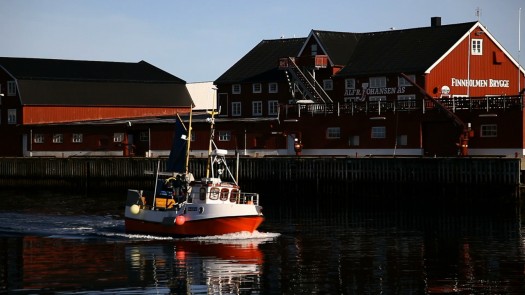The SOUND of whales
Oceans sounds is a private company that is dedicated to research marine life off the Lofoten Islands. Its founder is Heike I. Vester, a german biologist who studies whale sounds to communicate with each other, even with humans who come to watch them.
During the year many species of whales come to the Lofoten Islands to feed in its waters, the soft flanks Dolphins Atlantic White-beaked Dolphin, Fin Whale, Minke Whale, Humpback Whale, common porpoise, Orcas and pilot whales. In the last two years the Orcas have left approaching these islands, because due to the rise the temperatures in water the fish have gone to north, causing the Orcas go after food.

Ocean Sounds works and researches in the Lofoten Islands for its wealth of marine life and particularly for her interest in studying their communication habits of the pilot whales and orcas. These animals live in large groups and communicate with each other. In Ocean Sounds investigated by hydrophones the different sounds they emit. Also the message types, as the sounds vary according to the situation where they are.
The investigations they have done, show that cetaceans communicate very similar to humans, at any time by sending unintended messages. Moreover, it was discovered that there is some ability to transmit habits and traditions of generations, as if some oral tradition in cetacean culture. It is therefore important to conduct research such as Ocean Sounds, as the sounds and communication that whales and dolphins perform many dates gives us life, migration, food, habits, and of course, the effects of human actions on the lives of these species.

Heike tells how in Norway still allows whaling and the habit of buying meat in the fish is completely normal. The specie is fished is the Minke and the allowance is one thousand copies a year, which never arrive. Ocean Sounds is one of the few associations that complaint, which leads him not to receive any subsidies from the government for its investigations. On several occasions while she was working, record the sounds that the shots of the whaling ships emit when they shoot a few miles to the whales. Sometimes shoot to the babies to attract their mothers, even to killing pregnant females.

Neither Ocean Sounds nor Pakea Bizkaia understand how a tradition like this persists in a country like Norway. It is not an economic issue, because today, whaling is not a big income, nor are many fishermen who continue to engage with it. It’s just a tradition that endures without the vast majority of Norwegians effects arising thereof. The vast majority of cetacean species are found in the red and some of them endangered, how is it possible that a tradition can remain even when is causing imbalance marine life and oceans?












